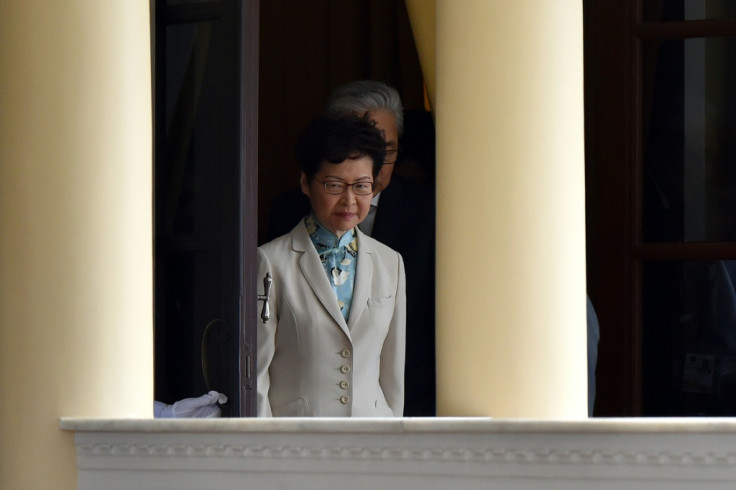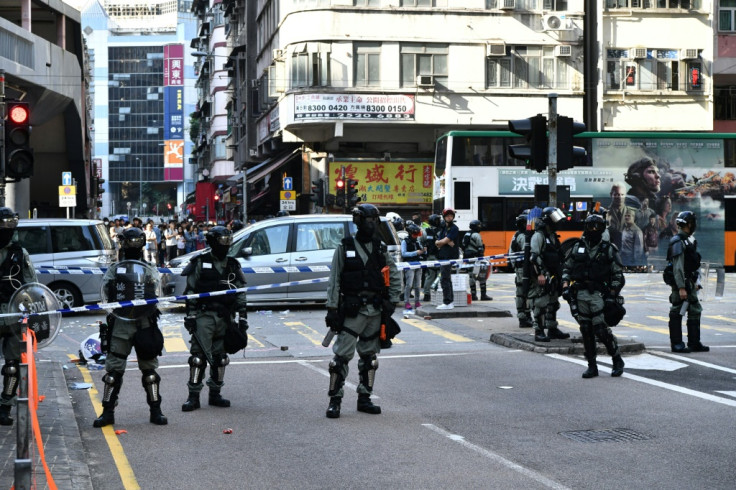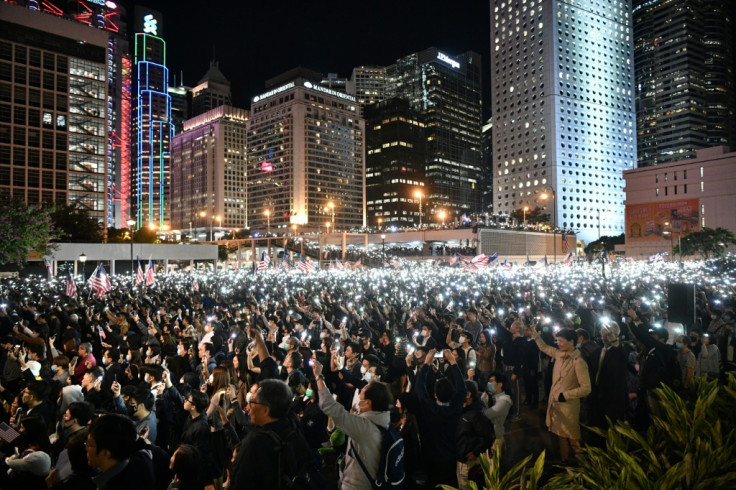Hong Kong set for fresh protests as police end university siege
They also ushered in a rare period of calm following weeks of spiralling unrest, with no clashes or tear gas battles between protesters and police for more than a week.
Hong Kong police on Friday ended their two-week siege of a university campus that became a battleground with pro-democracy protesters as activists vowed to hold fresh rallies and strikes in the coming days.
Renewed calls to hit the streets came after Beijing and city leader Carrie Lam refused further political concessions despite a landslide victory for pro-democracy parties in local elections last weekend.
Sunday's district council polls delivered a stinging rebuke to the financial hub's pro-Beijing establishment and undermined their argument that a silent majority were tired of the nearly six months of increasingly violent protests.
They also ushered in a rare period of calm following weeks of spiralling unrest, with no clashes or tear gas battles between protesters and police for more than a week.
But the calm spell looks set to end as public anger grows once more over the lack of response to the election results by Beijing and Hong Kong's leaders.
In China this week, state media has sought to downplay and discredit the weekend ballot while Lam, who boasts record-low approval ratings, has acknowledged public dissatisfaction but ruled out further concessions.

"I have every confidence that Hong Kong can bounce back as we always do," Lam told reporters on Friday during an official visit to Thailand.
But online forums used to organise the mass movement have filled with calls for a major rally on Sunday and a strike on Monday targeting the morning commute.
"If the communist Hong Kong government ignores public opinion, we will blossom everywhere for five or six days straight... We have to set a deadline," read one post on the Reddit-like LIHKG forum, which got heavy approval from users.
The calls raise the spectre of a return to the kind of weekly political chaos that has battered Hong Kong for nearly six months and helped tip the city into recession.
On Friday, police said they were closing the book on one of the most violent chapters of the protest movement -- the siege of the Hong Kong Polytechnic University.
The sprawling red-brick campus became a battleground on November 17 between police and protesters armed with bows and arrows as well as Molotov cocktails.

The standoff settled into a tense stalemate during which hundreds fled the campus -- some making daring escapes, others caught and beaten by officers during failed breakouts -- leaving a dwindling core of holdouts surrounded by police cordons.
After university leaders said almost all protesters had left, police teams moved in on Thursday to gather more than 4,000 Molotov cocktails and other weapons left behind after the occupation.
On Friday afternoon police removed the cordons surrounding the campus and departed, ending the 13-day siege.
The university now faces a mammoth clean-up task with vast swathes of the campus ransacked, filled with broken glass, barricades and rotting food.
In a letter to students on Friday, university officials called on people to stay away.
"The campus is still unsafe, and will continue (to) be closed," officials said.
But members of the public still made their way onto campus.
"All the images of the battle came right back to my mind when I saw all the debris," one lady told Apple Daily in a live broadcast, bursting into tears.
Hong Kong's protests are fuelled by years of seething anger over China's perceived erosion of liberties in the semi-autonomous city.
It was belatedly withdrawn under public pressure, but by then violent clashes between police and protesters had become the norm and the movement had snowballed into wider calls for police accountability and fully free elections.
More than 5,800 people have been arrested and nearly 1,000 charged according to government figures while police have fired more than 12,000 tear gas canisters.
Beijing denies stamping out Hong Kong's liberties and has portrayed the protests as a foreign-backed "colour revolution" aimed at destabilising mainland China.
Copyright AFP. All rights reserved.

This article is copyrighted by International Business Times, the business news leader





















